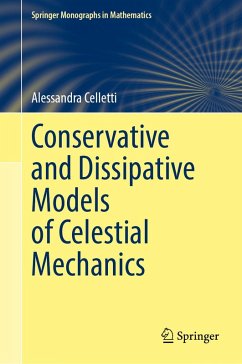
Ergodic Theory
A Probabilistic Approach to Dynamical Systems
Versandkostenfrei!
Versandfertig in 6-10 Tagen
46,99 €
inkl. MwSt.

PAYBACK Punkte
23 °P sammeln!
Ergodic theory provides a powerful lens for understanding dynamical systems, recasting disordered and seemingly random behavior in the language of probability theory. This book offers a concise, rigorous introduction to the subject, suitable both as a graduate-level textbook and as a reference for both pure and applied mathematicians. Part I (Chapters 1 7) lays the foundation, covering invariant measures, measure-theoretic isomorphisms, ergodicity, mixing, entropy, and culminating in the Shannon McMillan Breiman Theorem.Part II (Chapters 8 13) shifts focus to continuous maps of metric spaces, ...
Ergodic theory provides a powerful lens for understanding dynamical systems, recasting disordered and seemingly random behavior in the language of probability theory. This book offers a concise, rigorous introduction to the subject, suitable both as a graduate-level textbook and as a reference for both pure and applied mathematicians.
Part I (Chapters 1 7) lays the foundation, covering invariant measures, measure-theoretic isomorphisms, ergodicity, mixing, entropy, and culminating in the Shannon McMillan Breiman Theorem.Part II (Chapters 8 13) shifts focus to continuous maps of metric spaces, exploring the collection of invariant measures corresponding to a given map. Part III (Chapters 14 16) presents advanced topics rarely found in textbooks at this level, including SRB measures, their deep connection to entropy and Lyapunov exponents, and extensions to two important settings: random and infinite-dimensional dynamical systems.
Throughout, the authors emphasize not only the mathematical elegance of ergodic theory but also its practical relevance and rich connections to other areas of mathematics, from information theory to stochastic processes.
Part I (Chapters 1 7) lays the foundation, covering invariant measures, measure-theoretic isomorphisms, ergodicity, mixing, entropy, and culminating in the Shannon McMillan Breiman Theorem.Part II (Chapters 8 13) shifts focus to continuous maps of metric spaces, exploring the collection of invariant measures corresponding to a given map. Part III (Chapters 14 16) presents advanced topics rarely found in textbooks at this level, including SRB measures, their deep connection to entropy and Lyapunov exponents, and extensions to two important settings: random and infinite-dimensional dynamical systems.
Throughout, the authors emphasize not only the mathematical elegance of ergodic theory but also its practical relevance and rich connections to other areas of mathematics, from information theory to stochastic processes.












